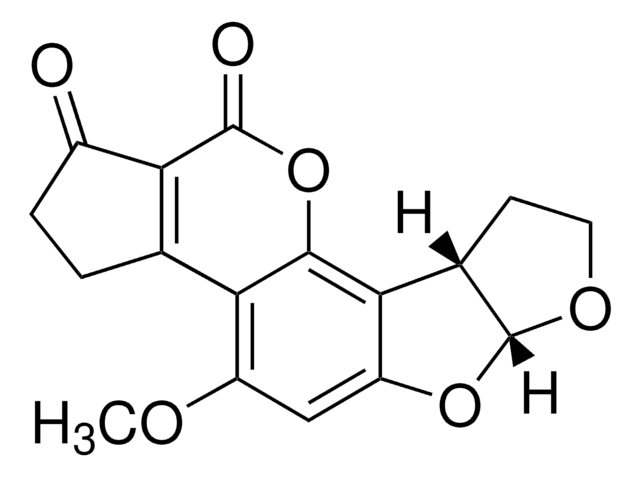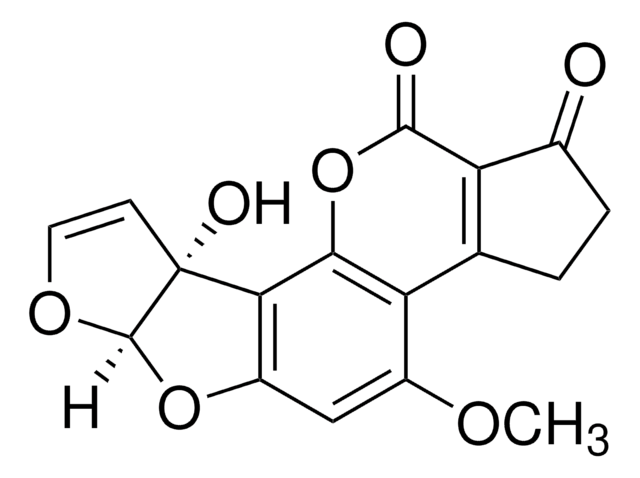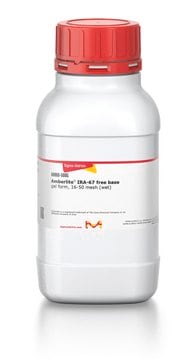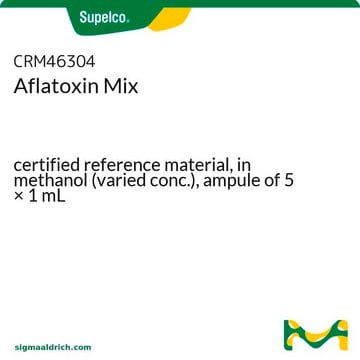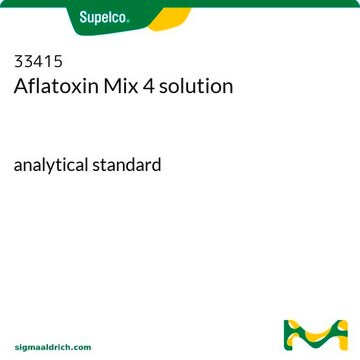About This Item
Recommended Products
form
powder
Quality Level
storage temp.
2-8°C
SMILES string
[H][C@@]12CCO[C@]1([H])Oc3cc(OC)c4C5=C(C(=O)OCC5)C(=O)Oc4c23
InChI
1S/C17H14O7/c1-20-9-6-10-12(8-3-5-22-17(8)23-10)14-11(9)7-2-4-21-15(18)13(7)16(19)24-14/h6,8,17H,2-5H2,1H3/t8-,17+/m0/s1
InChI key
WPCVRWVBBXIRMA-WNWIJWBNSA-N
Looking for similar products? Visit Product Comparison Guide
General description
Application
- peanut confection
- Ginseng and other roots
- olive oil, peanut oil, and sesame oil
Biochem/physiol Actions
Warning
Signal Word
Danger
Hazard Statements
Precautionary Statements
Hazard Classifications
Acute Tox. 1 Dermal - Acute Tox. 1 Oral - Acute Tox. 2 Inhalation - Carc. 1B - Muta. 1B
Storage Class Code
6.1A - Combustible acute toxic Cat. 1 and 2 / very toxic hazardous materials
WGK
WGK 3
Flash Point(F)
Not applicable
Flash Point(C)
Not applicable
Regulatory Listings
Regulatory Listings are mainly provided for chemical products. Only limited information can be provided here for non-chemical products. No entry means none of the components are listed. It is the user’s obligation to ensure the safe and legal use of the product.
ISHL Indicated Name
Substances Subject to be Indicated Names
ISHL Notified Names
Substances Subject to be Notified Names
JAN Code
A0263-5MG-PW:
A0263-VAR:
I-0038:
A0263-10MG:
A0263-1MG-KC:
A0263-5MG:
A0263-10MG-PW:
I-0037:
A0263-1MG:
A0263-BULK:
A0263-1MG-PW:
A0263-10MG-KC:
Choose from one of the most recent versions:
Certificates of Analysis (COA)
Don't see the Right Version?
If you require a particular version, you can look up a specific certificate by the Lot or Batch number.
Already Own This Product?
Find documentation for the products that you have recently purchased in the Document Library.
Customers Also Viewed
Articles
Cancer research has revealed that the classical model of carcinogenesis, a three step process consisting of initiation, promotion, and progression, is not complete.
Our team of scientists has experience in all areas of research including Life Science, Material Science, Chemical Synthesis, Chromatography, Analytical and many others.
Contact Technical Service